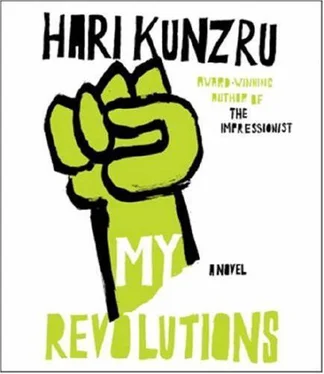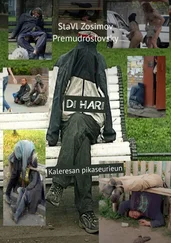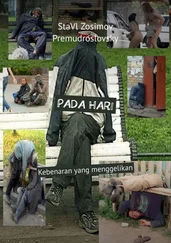I was completely unprepared to meet her. As I made my way down she appeared in front of me on the path, very suddenly, as if she’d risen out of the ground. She was wearing a sleeveless blue dress and the same straw sun hat as before. It was crammed down low on her head, the way Anna always wore hats. When we lived at Lansdowne Road I used to tease her by asking if she was expecting a high wind. “ Pardon ,” she said, and stepped around me, striding on up the hill. Her voice was pitched higher than I remembered. My legs felt weak. I could hear the crunch of her footsteps; all I’d have to do was call her name.
And what then?
God, her face. Anna’s face. The high cheekbones, the full mouth; a mouth now nested in lines but the same mouth . There was always something primitive about Anna’s face. In certain moods she could fix it into a carved wooden mask, a thing to be worshipped, feared. Did I even see her eyes? Anna’s eyes were green. When things were good between us, I couldn’t bear to meet them for too long in case I gave myself away, blurted out all the promises I was trying so guiltily to extract from her. But she hadn’t looked up. And I hadn’t been recognized — her pace didn’t falter as she passed by.
Anna Addison. Who’d been killed in the conference room of the German embassy in Copenhagen in 1975.
* * *
Nothing is permanent. Everything is subject to change.
I walked back down the hill past the two old women, who gave me the evil eye as I went by. Under my feet the cobbles felt distant, almost spongy, like a street in a dream. Then I began to run, and once again it was 1968 and I was pressed against the trunk of a tree outside the American embassy in Grosvenor Square.
Annica is the Buddhist term. The cosmic state of flux.
I was trying to link arms with the guy next to me, whose long hair was matted with blood. The tree provided some shelter because the mounted police couldn’t ride under the branches. As long as I was there, I was relatively safe. All around me there was an incredible rushing noise, which I knew was composed of shouting and screaming and firecrackers and stamping hoofs, but sounded to me like a great wind, like history.
I was twenty years old. I thought about history a lot.
Up close, coming toward you, police horses are bigger than you could imagine. Facing the metal-shod hoofs, the jangling harnesses, wild eyes, and flaring nostrils, you know how it must have felt to be a serf in a medieval battle. The wall of flour-spattered blue tunics in front of the embassy parted and the horses charged into us, kicking up clods of turf, their riders standing up in the stirrups to add force to their baton blows. There was no pretense in that charge. It was about unleashing as much violence as possible. People were thrashing about on the ground. I saw a girl trapped beneath a horse, desperately trying to cover her head with her hands. The horse reared up, almost unseating its rider, a red-faced sergeant with a toothbrush moustache. People were shouting at him, one or two of the braver ones edging forward to try to pull the girl out. Red-face thought they were attacking him and twisted
around in his saddle, flailing left and right with his stick. Finally the horse shied away and the girl was left unconscious on the ground, a tiny broken thing in a suede jacket with a young man on his knees beside it, trying to gather it up.
Protesters were running in all directions. Pressed against the tree trunk I was only a few feet away from the police line, which had re-formed on the far side of the ironwork fence that marked the western boundary of the square. From time to time they’d reach over it and grab someone; we’d cling on from behind, clutching at ankles or belts in little comic tugs-of-war. To do this we’d have to emerge from the shelter of the tree. I was hanging on to some guy’s leg, looking over my shoulder to check that I wasn’t about to be trampled or coshed, when I spotted her running forward, a thin girl in blue jeans and a torn army jacket, her long brown hair tied back from her face with a scarf. There was something both reckless and self-possessed about her, about her loping run, the clean overarm action she used to throw the stone; as I watched it arc through the sky, I felt both aroused and ashamed, aroused by the casual beauty of her act and ashamed of myself, for so far that afternoon all I’d done was push and shove and jog around confusedly, trying not to get arrested. She had the clarity I lacked. It had become a fight, so she was fighting back. The stone fell somewhere behind the line of black vans drawn up in front of the embassy steps. When I looked around again, she’d disappeared.
Later, when I met Anna, I told her I’d seen her before, at Grosvenor Square. I told her the way she carried herself had “profoundly affected me”; that was the phrase I used. It sounded pompous even as it came out of my mouth and I wished I’d found a better one. We were at the house in Lansdowne Road. I can remember sitting on the floor in front of the fireplace, leaning against the ratty old couch. She held her hand in front of her mouth as she laughed. I laughed too, just from the pleasure of being next to her. I’m no longer sure why I thought she was lying when she told me it wasn’t her: she had no reason to lie. She said she’d been on the march,
but a girlfriend had felt faint and she’d taken her home. She’d never made it to the embassy. The strange thing is that, although I dropped the subject, I was so certain I’d seen her that it became part of my personal mythology, an unexamined truth that in later years took on a dubious aura of prefiguration, confirming to me that though they’d felt disordered at the time, even terrifyingly random, the events of my life with Anna were in some sense necessary, that the future had been pulling me toward itself, reeling me in.
* * *
I don’t remember much about how I got back from SainteAnne-de-la-Garrigue. At the apartment, Miranda greeted me with a curt nod and a silence that persisted through the remaining days of our holiday, cloaking our final packing and washing-up, the return of the keys, the long drive to the coast. She didn’t ask where I’d been and I didn’t tell her; we traveled, as it were, in two separate capsules, as lonely a journey as I’ve ever taken.
As soon as we got home she threw herself into Bountessence, driving up to London and returning with loan documents, ad-agency artwork, sheaves of financial projections, bags and boxes from department stores containing elements of a new “business” wardrobe of tailored suits and high-heeled shoes. She walked around the house talking ostentatiously into her phone and whenever I asked how things were going she’d reply with a torrent of jargon, as if to underscore how far beyond my sphere of competence she’d moved. I was being warned: I might just find myself surplus to requirements.
Sam’s departure for university gave us a short respite. She’d spent the early part of the summer waitressing at one of the pizza joints in the town center, then bought herself a cheap flight to — of all places — South Africa, a country I was still unused to thinking of as a tourist destination. She returned soon after we did, happy and sunburned, to fill the house with loud music and stories about her adventures, which seemed mainly to have involved her and her schoolfriend Ally climbing up or jumping off or into things with the clean-cut boys whose pictures now took pride of place in the collage of snapshots above her desk. I tried not to speculate about whether she’d lost her virginity to one of these variously grinning white teenagers, the one in the striped
rugby shirt, the one with the shark’s-tooth necklace and the sunglasses pushed up like a headband into his streaky blond hair. None of my business if she had, of course. As Sam occasionally reminded me, usually just before slamming her bedroom door, I wasn’t her real dad. She was the product of Miranda’s monthlong fling with a musician, a drummer in an Australian band who’d gone home at the end of their tour not knowing about her pregnancy. I’d been around since Sam was two years old, and though I loved her very much I was annoyed to find myself so clumsily possessive. I felt ambushed, tripped up by fatherhood, a ridiculous and slightly creepy cartoon of a stepdad.
Читать дальше












